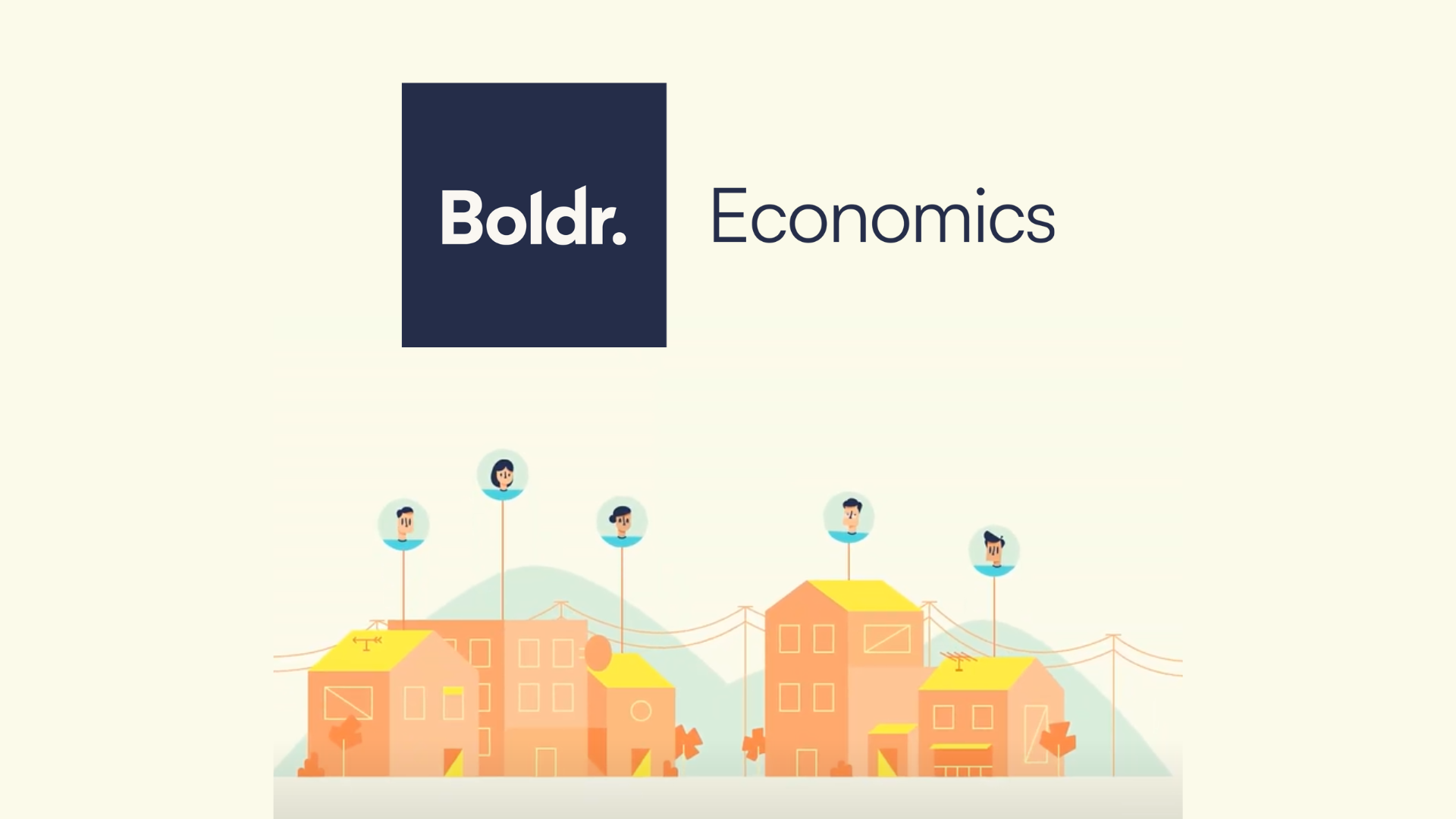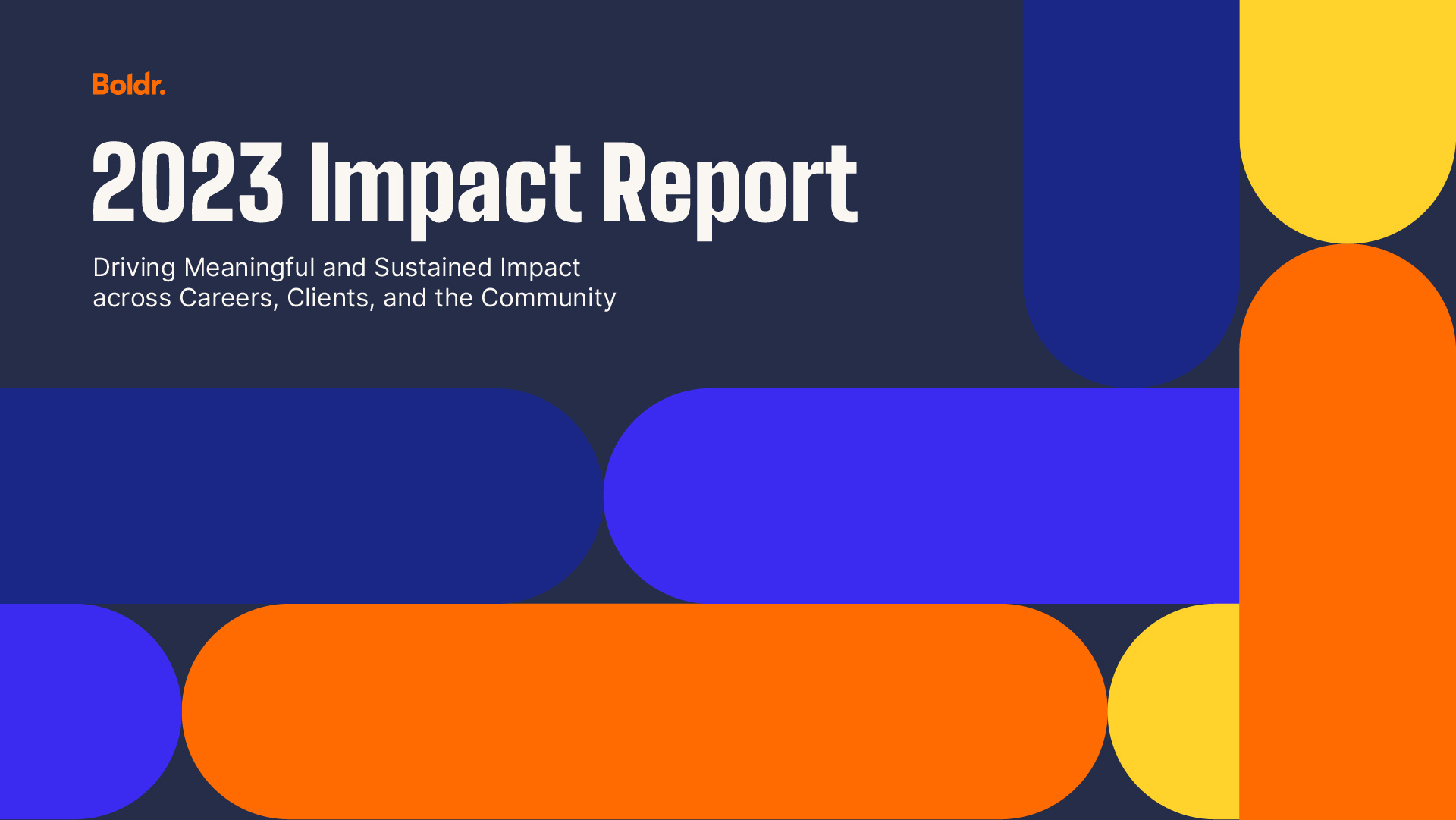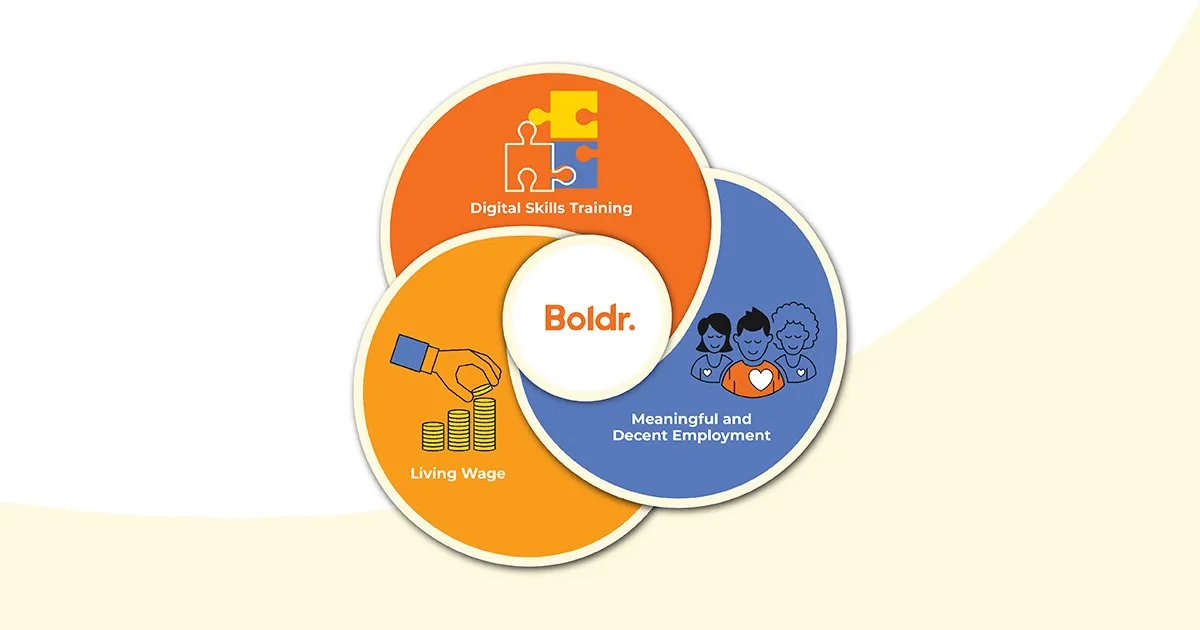“How does your company make a real impact by existing?”
Many companies (including us in our earlier years) strive to improve communities through volunteerism and philanthropy. Despite finding significant success in these activities, the reality is they are often tangential to the economic engine of the business and the impact only lasts as long as the intervention.
In 2022, we answered this question through our first Theory of Change which then focused our impact efforts towards expanding access to education, digital skills training, and meaningful employment. While this iteration clarified the impact we made for the community, defining “impact” for our team member’s careers and of equal importance, our client’s success was still missing from the equation. This prompted us to ask:
How do you know you’re making an impact on your team and clients?
At the most basic and simplest level, we measured our impact on our team by how long they were staying with us (or retention) and whether they achieved a better life by growing in their careers (promotions and how much their salary increases over time on average). On the other side of the equation, we measured our impact on our clients by how long they stay with us (client lifetime value and retention) and how they scale their business with us.
Measuring Impact for Careers
We’ve covered the basics, and we delivered on our commitment to pay a living wage to 100% of team members, but this is the bare minimum. As of 2023, we achieved an annualized retention rate of 90% which is 50% higher than the industry average. Historically, we’ve found that team members stay with us for at least up to two years (which is over ten months longer than most BPOs).
Within that two-year tenure, team members will have achieved a promotion at least 1.3 times. Finally, we found that the team members who have grown with us over the last five years have increased their income by about 150%. Simply put, we impact each team member by creating an experience that allows them to stay and thrive professionally and economically.
Read: How High Retention Rates Can Maximize Business Success
Measuring Impact for Clients
Most of Boldr’s growth over time came from existing clients and referrals from current clients. In the last seven years, we found that our clients have an average lifetime value of up to 4.5 years. This means that on average, our clients stay with us for at least 4 and a half years (or longer) as we have retained most of the clients we started with during Boldr’s inception.
Clients who choose Boldr as their long-term Managed Outsourcing or Global Employment partner grow with us. We’ve seen clients grow from a team of 20 to over 100 team members over a year. In other cases, our support has evolved from providing Tier 1 support to building Tier 2 and 3 teams to handle more complex tasks or new business lines. Whenever our clients grow, our ability to create meaningful careers for more individuals in communities grows as well.
Read: How Babylist Retained & Scaled Their Support Team Through Global Employment
Measuring Impact on Community
Making a difference means helping families live dignified lives by moving meaningful work to regions that need it more, reducing barriers to entry, and solving the digital skills gaps. While the share of team members who come from disadvantaged communities is small compared to the larger Boldr population, we measured the depth of our impact on their lives holistically.
Out of the 129 individuals to whom we provided digital skills training, 43 have progressed into long-term employment with Boldr and other companies. This access to digital skills training resulted in a 106% increase in their salary on average when compared to their previous work (for those who were employed in casual work).
Read: Enabling economic mobility in rural South Africa through the Boldr BPO Academy
Telling our Impact Story through “Boldr Economics”
In a nutshell, when companies take care of their people, their people take care of their work which creates long-term sustainable value for the company as seen in the quality of the services delivered. This flywheel of value is summarized in our “Theory of Change” or “Boldr Economics”.

Beyond the theory of our hypothesis, the story featured in the explainer video represents a shared reality of our team members. While the challenges, context, and location differ, a common thread connecting everyone is a desire to grow and provide a good life for them and their families.
While there are thousands of business process outsourcing companies that employ millions of people like Jun-Jun all over the world, the difference is the intent to create circular value as opposed to benefiting a few shareholders. Boldr Economics shows how solving a commercial problem can also ostensibly solve a societal problem.
This “model” simplifies the cross-border impact that happens when clients choose to build their global teams in these markets. On a granular level, we create the conditions necessary for every customer interaction, ticket resolution, or service level agreement to be done excellently because the level of care and development provided to our teams is equally as excellent.
What does this mean for your company?
Achieving purpose and profit at the same time is possible. It requires shifting the narrative from people as “inputs” to “individuals” whose growth and development drive success for the business and its customers. When companies value and invest beyond the output of their teams, they are in essence, reinvesting back into the business. Through Boldr Economics, our goal is for more companies to see the real benefit of this shift.
“Many companies do not realize the extent to which doing good can be highly profitable as well as socially beneficial…sustainability, customer satisfaction, environmental, social, governance mechanisms lead to higher returns, lower risk and lower capital costs”
- Colin Mayer, Prosperity: Better Business Makes the Greater Good
Realizing Boldr Economics is a life-long journey that we aspire to take with more players in the industry, not limited to outsourcing. The clamor for more ethical global supply chains was sparked by a handful of companies (such as Patagonia, Ben & Jerry’s, Tom’s, All Birds among others) who believed in a different way of approaching capitalism and proved that companies can achieve exponential success and growth while being a force for good in the world.
These companies had their own Theories of Change but shared a similar vision of a world where they are no longer the exception but the norm. We aspire to spark a similar movement among companies within and beyond our industry, starting with those in the digital supply chain.
If you are a company curious about how Boldr Economics correlates client impact with social impact, we would love to connect. Reach out to Glo Guevarra at gguevarra@boldrimpact.com.
Glo Guevarra is the Head of Impact and Content at Boldr and she holds a postgraduate degree in Labor, Activism, and Development from SOAS University of London.


